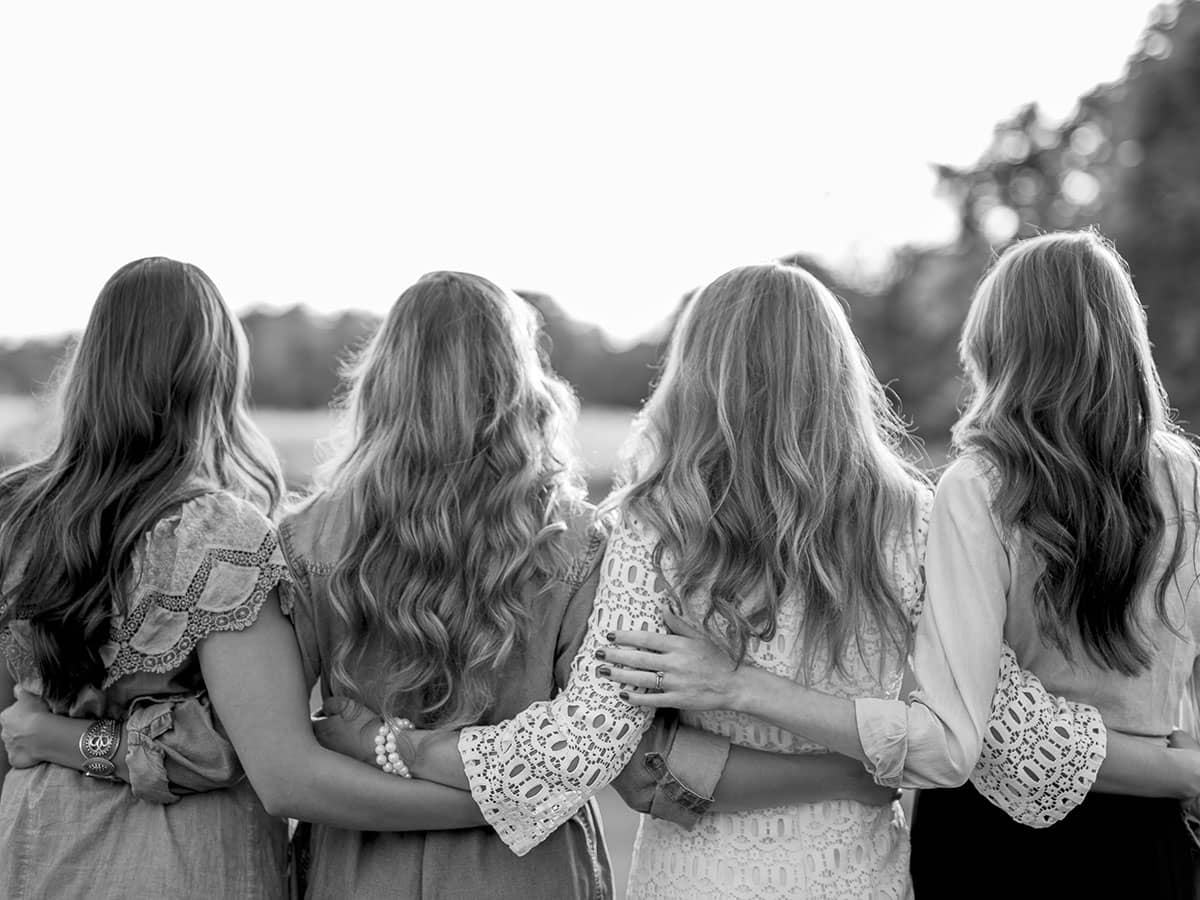
From the beginning of our socialization, we are focused on finding other females to bond with in significant and ego-affirming ways. Who among us didn't have a best friend at some point or another in our childhoods, the one girl we could always count on to sit with at lunch or play tetherball with during recess?
And for every best friend we've had, we've lost one -- or more -- along the way. Friendships can be brief and intense or long and easy, but one thing is for sure -- women need other women in their lives.
Scientists now suspect that hanging out with our friends can actually counteract the kind of stomach-quivering stress most of us experience on a daily basis. A landmark UCLA study suggests that women respond to stress with a cascade of brain chemicals that cause us to make and maintain friendships with other women. It's a stunning find that has turned five decades of stress research -- most of it on men -- upside down. - UCLA Study on Friendship in Women.
When we were children, it was often the girl who was the cutest -- the "popular" girl -- who everyone wanted to befriend. She would choose one or two girls to be her buddies and often leave others feeling left out and less-than-part of the social jungle of elementary and middle school.
As girls grow older they often find friendships complicated by their physical attractiveness. In high school when everyone is struggling to figure out who they are, the prettiest girls are often seen -- usually erroneously -- as the most confident and happy. Other girls want to bask in her glow. They tend to her like a goddess, and if some of the boys she attracts look their way, all the better. But as I always told my kids, "you don't want to peak in high school." For these high school beauties, finding true friendship can be an eye-opening experience as they reach adulthood and their physical attractiveness is no longer considered a top priority on the list of qualities women look for in friends.
The conflicts of friendship when we're young don't go away as we get older, and often competition among women -- whether in the workplace or the kindergarten pickup line -- grows more intense. Because women can be so competitive and notoriously mean-spirited at times, it becomes even more important to find friends you can trust and rely on for everything from marital advice to last-minute child care.
For some women, friendship can be a minefield, filled with jealousy and envy. Sometimes women enter into friendships with more passion and energy than they have ever done in a relationship with a lover -- in essence "falling in love" with a woman in a purely platonic sense. Often these friendships are lopsided and end badly, as any unbalanced relationship is bound to do.
The key is to discern the difference between a situational friend -- one with whom we connect on a surface level -- and a true friend. Proximity and time spent together may make the situational friend appear to be genuine, but these types of friends tend to drift away after the shared experience is over. The true friend is one with whom we may share few situational experiences or who lives far away from us, but on whom we can rely for emotional support and consistent and engaging conversation.
As we grow older the true friendships become more clearly defined as we go through life transitions -- children growing up and away, loss of parents, illness, and more -- and the comfort and familiarity of long-term friendships takes priority over the excitement of a new-found acquaintance.

If you are still, at midlife, grappling with the mean girl relationships in your life, it's time to move on from them.
Being cute and bitchy is expected in middle school, but at middle age it's inappropriate and toxic. So take a good look at the relationships in your life and be honest with yourself. Friendships are a key factor to a happy middle age and beyond, and we all need a few good people to turn to. Keeping friendships alive and strong is not only good for our souls, but it's essential to our well-being, too.The six-year [Yale University] study, which focused on people age 60 and older, found that men and women were 45 percent more likely to die during the study if they reported feeling lonely, isolated, or left out. They were also 59 percent more likely to have difficulty with everyday tasks such as dressing and bathing, an important measure of overall health in older people." -- CNN.com.
As corny as it may sound, it's still true: The best way to have great friends is to be one. Take care of yourself by allowing good people into your life, take care of others by being a good friend. By keeping those who are destructive or superficial on the periphery, you'll value the meaningful friendships even more.

